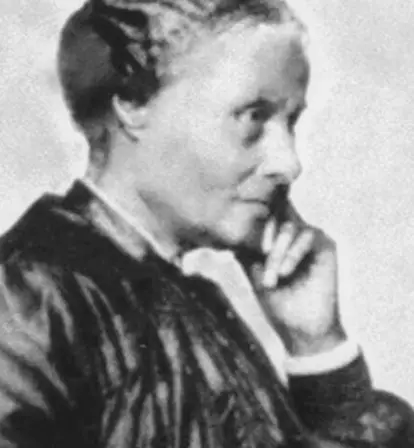Even though Mary Ellen Pleasant amassed $30 million thanks to her real estate empire, the white press vilified her as a mere brothel owner and insisted on calling her "Mammy."
Mary Ellen Pleasant was an African American businesswoman and abolitionist who amassed a fortune by eavesdropping on her wealthy bosses while doing domestic work.
Using her invisible status as a cook, Pleasant took the financial gossip she overheard to make investments that made her the first African American female millionaire.
But her success as a black woman triggered rumors that she was a ‘Voodoo Queen’ who would do anything — even kill — to maintain her wealth.
Who Was Mary Ellen Pleasant?
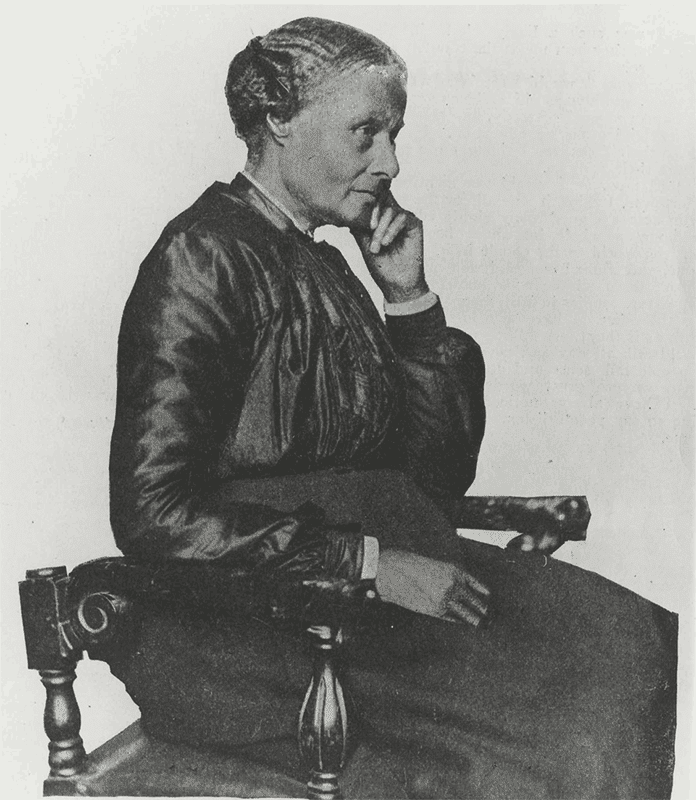
Wikimedia CommonsSome sources say Mary Ellen Pleasant made her fortune as an investor during the San Francisco Gold Rush.
Mary Ellen Pleasant was born sometime in 1814. Like a lot of things about her life, there is inconsistent information about whether she was born a slave, some say possibly on a Georgia plantation, or free.
But by her own words to journalist Sam Davis, who published an autobiography of Pleasant in his journal The Pandex of the Press, she was born on Aug. 19, 1814, in Philadelphia to free parents. Her mother was a black woman from Louisiana while her father was Kanaka or native Hawai’ian.
At a young age, she worked as a domestic servant to a wealthy family in Nantucket, Massachusetts, where she learned how to read, write, and work. But she never received a formal education.
“I often wonder what I would have been with an education,” Pleasant stated in her 1902 autobiography. “I have let books alone and studied men and women a good deal…I have always noticed that when I have something to say, people listen. They never go to sleep on me.”
She first married James Henry Smith who historians believe was either white or mixed race. After he died in the 1840s, Mary Ellen Pleasant received a sizable inheritance of $45,000. Her second husband was a black man named John Pleasant who she likely met in New Bedford — a ‘station’ on the Underground Railroad.
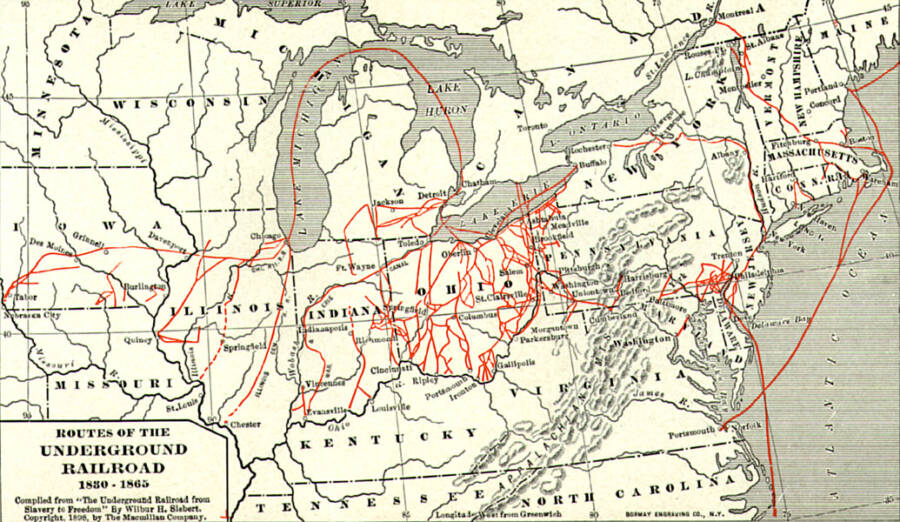
Wikimedia CommonsPleasant used her fortune to help fund the Underground Railroad.
When news of California’s Gold Rush spread, Pleasant headed west. She arrived in San Francisco in 1852 and landed a job as a cook earning $500 a month, a significant salary for a domestic worker, let alone a black woman in the Antebellum era.
She quietly eavesdropped on her clients — mostly rich miners and wealthy financiers — as she cooked for and served them, absorbing knowledge she used to invest her money wisely. Then, she used her investment profits to buy businesses like laundries and boarding houses.
“It’s quite possible that the jobs she had as a domestic were a cover that she was using because she clearly made her money from investments,” said Lynn Hudson, the author of the book The Making of ‘Mammy Pleasant’: A Black Entrepreneur in Nineteenth-Century San Francisco.
It wasn’t long before Mary Ellen Pleasant made enough money to strike out on her own.
Pleasant Builds An Empire
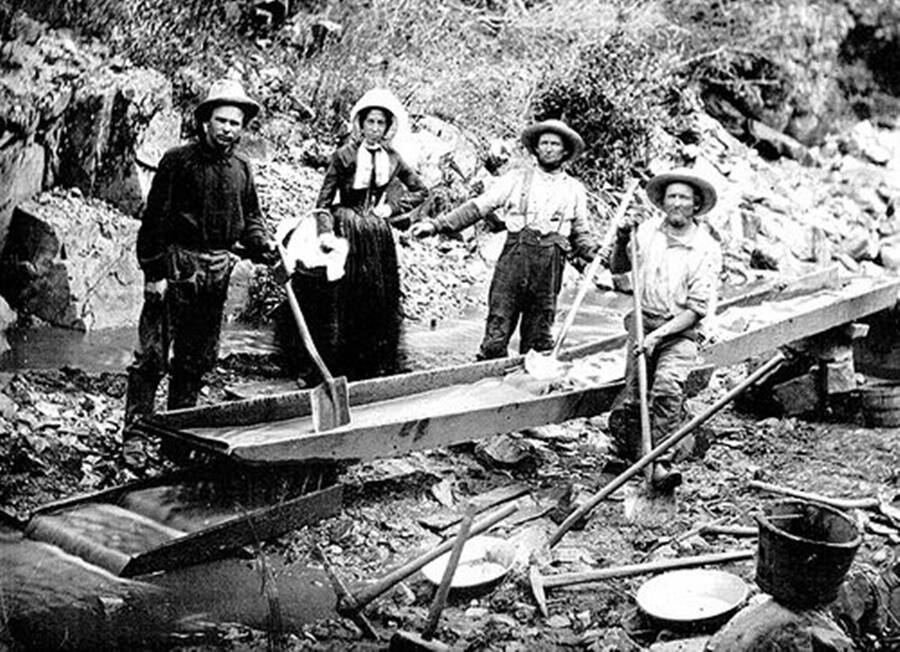
Wikimedia CommonsMany headed west during California’s Gold Rush starting in 1848.
In addition to her chain of laundries and boarding houses, Mary Ellen Pleasant also amassed an impressive real estate portfolio. She built a 30-room mansion worth $100,000 (or $2.4 million today) and acquired a 985-acre ranch in the Sonoma Valley.
She owned shares in restaurants, dairies, and even the newly formed Wells Fargo Bank. Historians believe her white business partner, a bank clerk named Thomas Bell, helped Pleasant acquire investments under his name to overstep hurdles she would face in purchasing them herself as an African American woman.
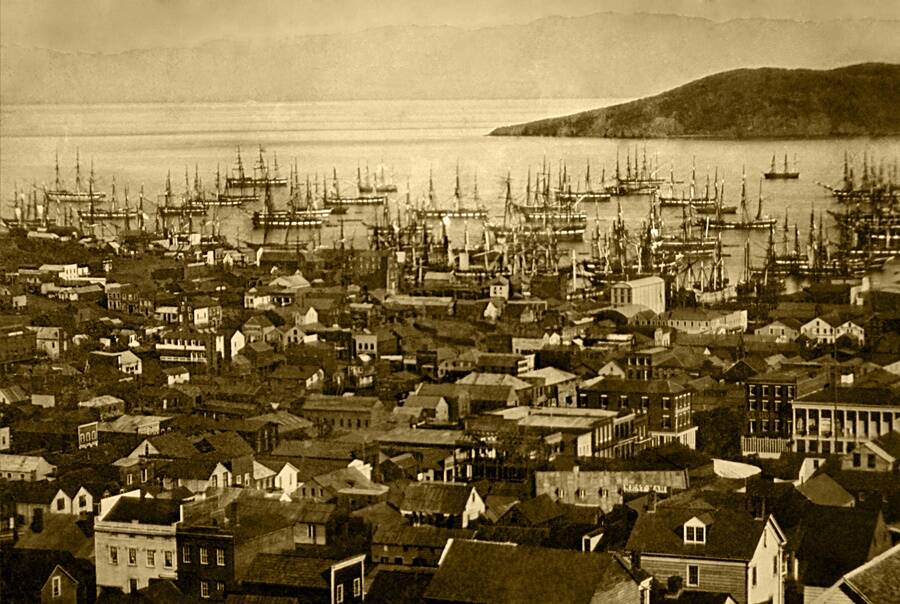
Wikimedia CommonsMary Ellen Pleasant saw a golden opportunity in newly bustling San Francisco.
“Here was a colored woman who became one of the shrewdest business minds of the State…She was the trusted confidante of many of the California pioneers such as Ralston, Mills and Booth, and for years was a power in San Francisco affairs.”
The unlikely couple forged a long-standing business partnership — which some suspect was also romantic — that made them both extremely rich. It is estimated that they owned a combined fortune over $30 million which in today’s currency would be equivalent to roughly $864 million.
When it came to standing up for her principles, Mary Ellen Pleasant famously said, “I’d rather be a corpse than a coward.” She used her money to help former slaves escape through the Underground Railroad and to fight racial discrimination through litigation.
“All that African Americans knew was that if they wanted something, they could go to her and somehow she would use her influence and she would get it,” said Susheel Bibbs, who has studied Pleasant’s life for over two decades for her theater performances. “And so they called her the ‘Black City Hall.'”
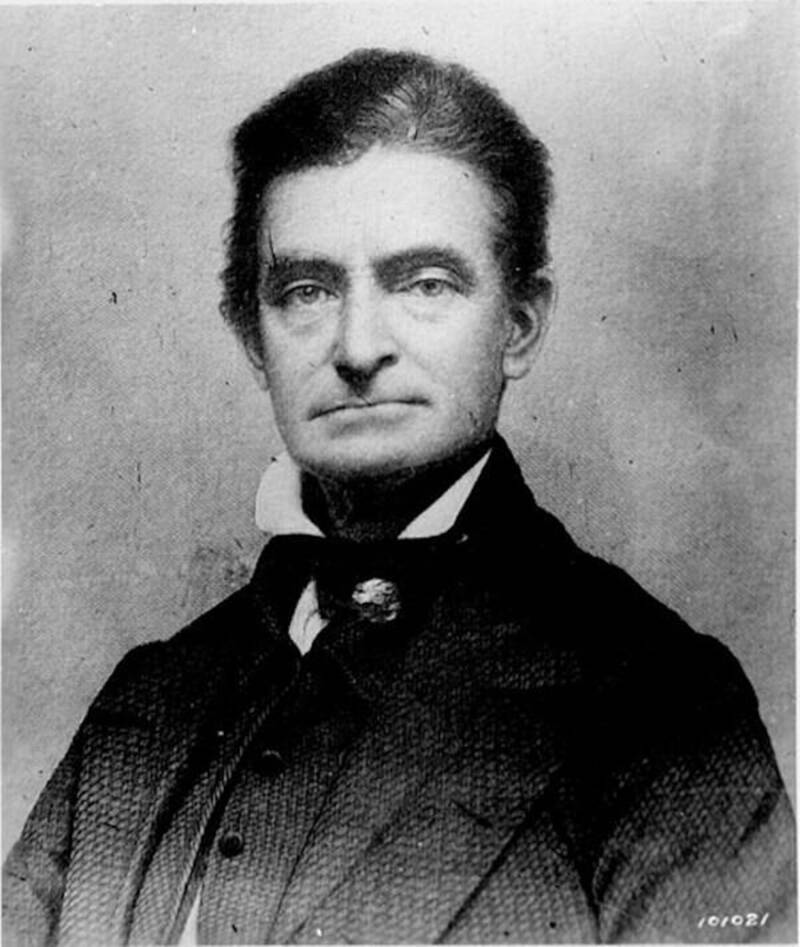
Wikimedia CommonsPleasant claimed to be the financier of abolitionist John Brown’s raid on Harpers Ferry.
Most famously, she was involved in an 1866 lawsuit against two streetcar companies alleging racial discrimination, paving the way for the desegregation of San Francisco’s streetcars.
Pleasant also claimed to be the financier behind abolitionist John Brown’s infamous raid on Harpers Ferry in 1859. Authorities discovered a letter on Brown which they suspected was from a businessman from the north promising more money for Brown’s cause. Pleasant said the letter was hers and that she donated $30,000 — nearly $900,000 in today’s currency — for the raid.
Thomas Bell’s Death Left Her Penniless

Beltane Ranch/InstagramPleasant’s former ranch property in Sonoma Valley which is now a bed-and-breakfast.
Despite Mary Ellen Pleasant’s entrepreneurial shrewdness, her success in crossing racial and class barriers as a black female millionaire spawned vicious allegations against her.
Rumors abounded that she acquired her wealth through voodoo, a spiritual practice rooted in African religion. The public also painted her boardinghouse establishments as “brothels,” and the press commonly referred to her as “Mammy Pleasant,” a nickname she explicitly detested due to its racial origins.
“I have never cared a feather’s weight for public opinion, for it is about the most ghostly thing I know of.”
Indeed, much of her fearsome reputation was brought on by parties envious of her influence. But some of it, Hudson contended in her book, was also brought on by Pleasant’s own deliberate secrecy which was necessary to guard her wealth. After all, she was a self-professed capitalist.
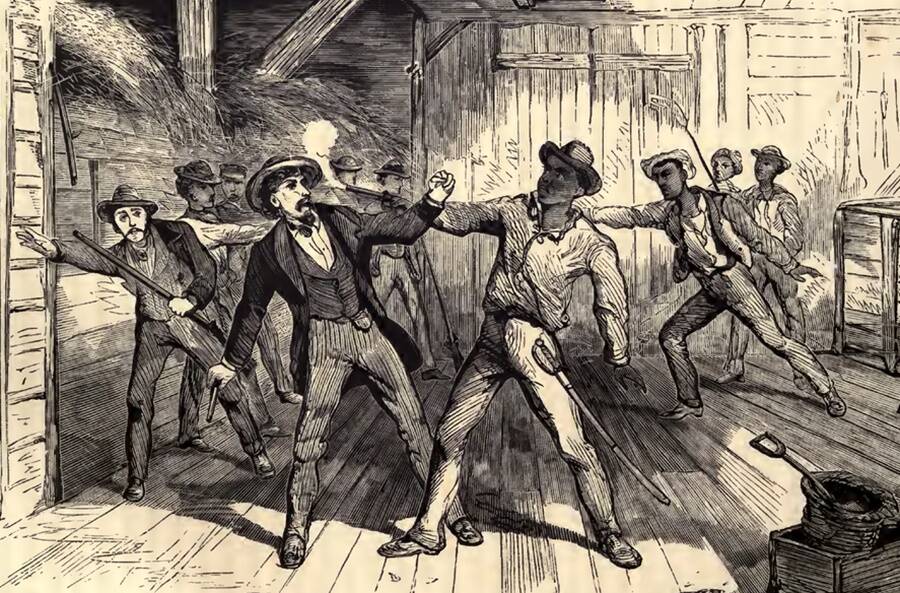
Wikimedia CommonsAn illustration of a scene from the Underground Railroad. Pleasant was an abolitionist who financed its escape efforts.
“Pleasant left a contradictory and incomplete set of information about her history,” wrote Hudson, citing few records of her past and how she accumulated money. “This was partly intentional.”
Her success as a black female entrepreneur is often compared to another historic figure, Madam C.J. Walker who is commonly referred to as America’s first self-made black woman millionaire. But Mary Ellen Pleasant’s success predated Walker’s by a few decades.
Unlike Walker, Pleasant’s wealth, unfortunately, did not pass on to her descendants. She shared her large mansion with her business partner Bell and his wife, and when Bell died in 1892 after falling down the stairs, many accused Pleasant of murder.
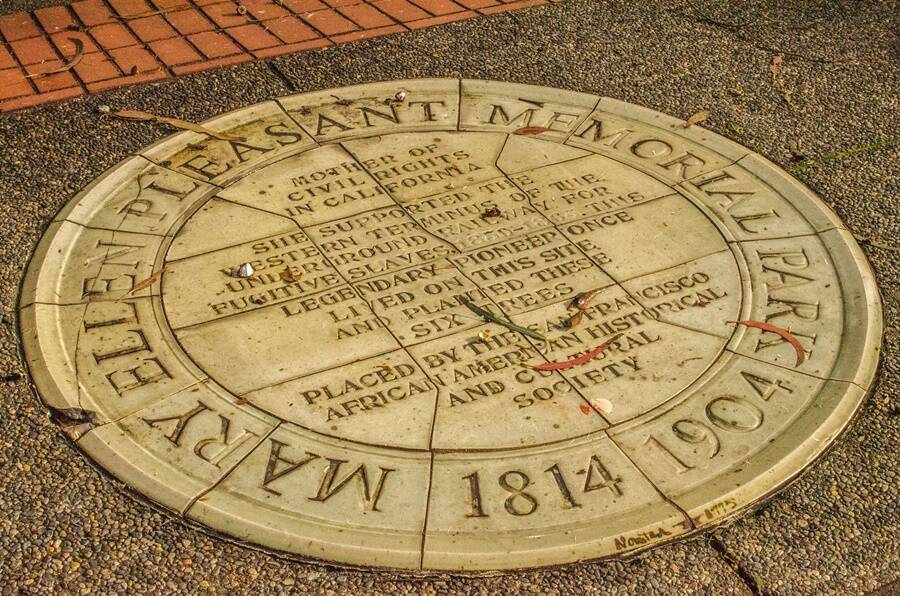
Wayne Hsieh/FlickrA small park in San Francisco houses a monument in her name.
His widow sued Pleasant for her assets registered under Bell’s name and won, leaving her nearly penniless. In the end, Pleasant died in 1904 in a rundown apartment. The little she had left was seized by lawyers and creditors.
Mary Ellen Pleasant was both feared and revered, and much of her legacy remains shrouded in mystery. But she was mostly an enterprising woman who started from nothing, yet cleverly amassed a fortune and broke barriers.
Now that you’ve learned about the mysterious legacy of Mary Ellen Pleasant, meet Charity Adams Earley, the highest-ranking African American female officer of World War II. Next, dive into the history of Queen Nzinga, the West African leader who fought off slave traders.
